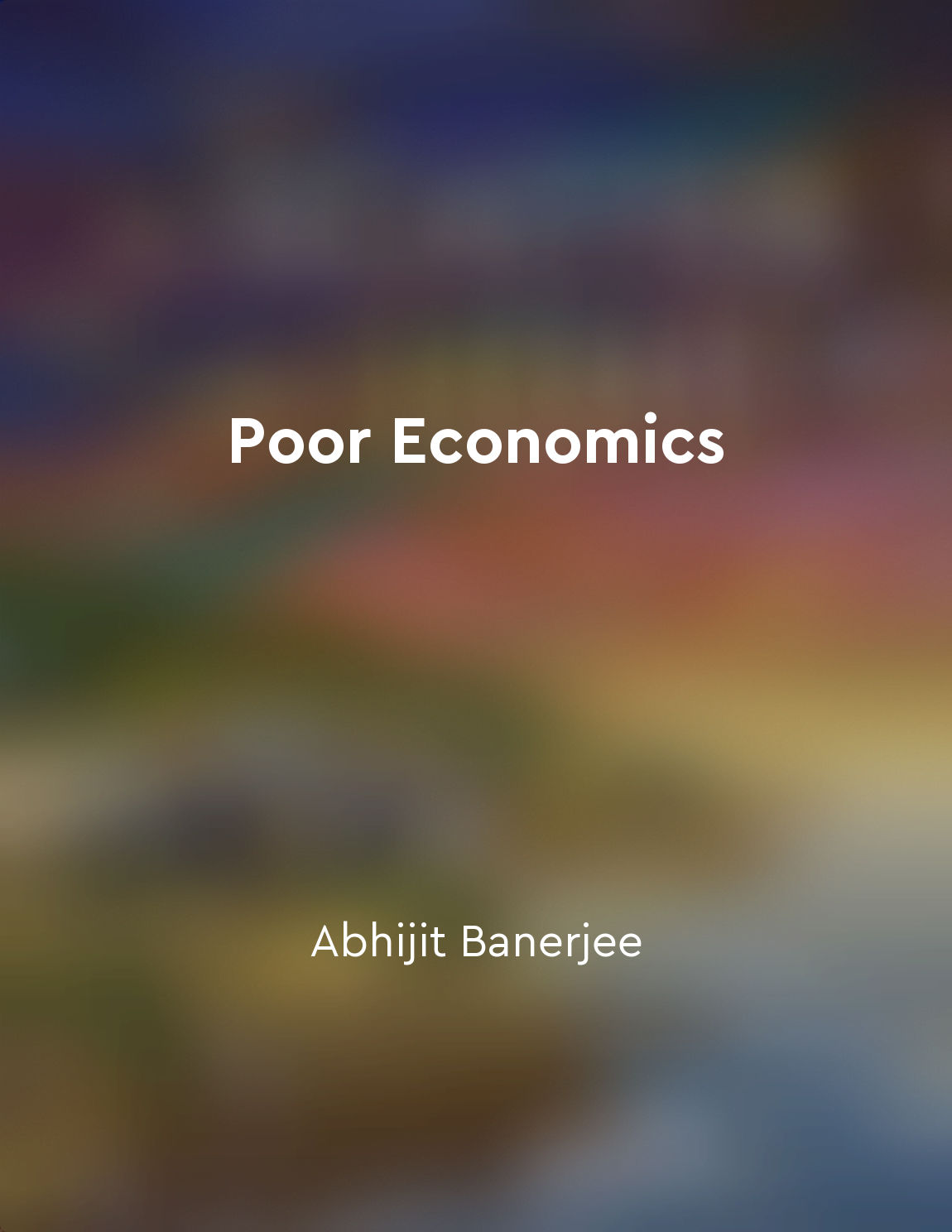Many interventions aimed at alleviating poverty fail from "summary" of Poor Economics by Abhijit Banerjee,Esther Duflo
The idea that many interventions aimed at alleviating poverty do not achieve their intended outcomes is a sobering one. It forces us to confront the harsh reality that good intentions alone are not enough to bring about meaningful change in the lives of the poor. As Banerjee and Duflo point out, the road to hell is often paved with good intentions, and this is especially true in the realm of poverty alleviation. One of the reasons why so many interventions fail to make a lasting impact is that they are based on assumptions that do not reflect the complex and multifaceted nature of poverty. Poverty is not just a lack of material resources; it is also a lack of access to education, healthcare, social support networks, and opportunities for advancement. By focusing solely on providing material resources, many interventions miss the mark and fail to address the root causes of poverty. Another key reason why interventions aimed at alleviating poverty often fall short is that they are designed without a deep understanding of the needs and preferences of the people they are meant to help. Too often, interventions are developed in a top-down manner, with little input from the communities they are meant to serve. This can lead to a disconnect between the goals of the intervention and the actual needs of the people it is supposed to benefit. In addition, many interventions aimed at alleviating poverty are not rigorously evaluated to determine their effectiveness. Without robust evaluation methods in place, it is impossible to know whether an intervention is actually making a difference in the lives of the poor. This lack of accountability can lead to wasted resources and missed opportunities to learn from past mistakes.- The failure of many interventions aimed at alleviating poverty can be attributed to a lack of humility on the part of policymakers and practitioners. Instead of assuming that they have all the answers, they should approach poverty alleviation with a sense of humility and openness to new ideas and perspectives. Only by acknowledging the complexity of poverty and working collaboratively with the communities they seek to help can interventions truly make a lasting impact.
Similar Posts
Poverty and discrimination are intertwined social issues
Poverty and discrimination are deeply connected phenomena that manifest in various aspects of society. Discrimination can lead ...
Addressing food security issues
Addressing food security issues involves tackling the complex web of factors that contribute to hunger and malnutrition on a gl...
Addressing healthcare challenges through affordable solutions
The challenge of providing healthcare to a population of three billion people living in rural areas is immense. Traditional hea...
Social mobility differs globally
Social mobility, or the ability of individuals to move up or down the social ladder, is not the same in every country around th...
Desire
The burning fire of yearning that consumes the human soul is a force that drives us to seek beyond the confines of the known. I...


